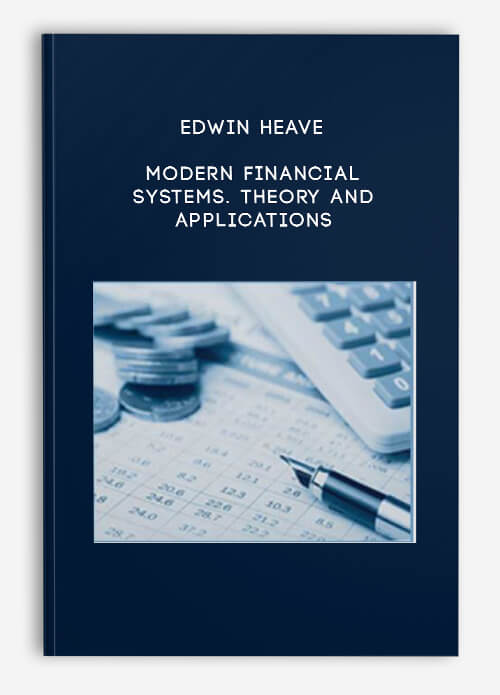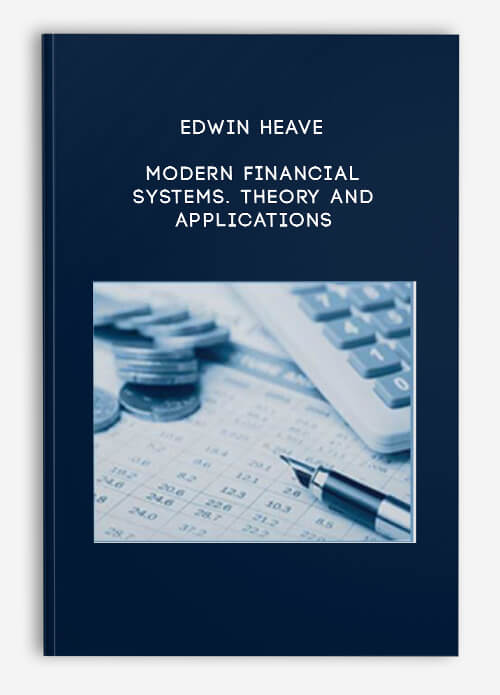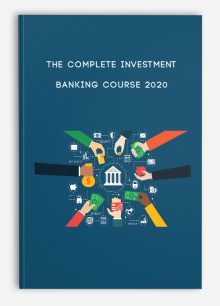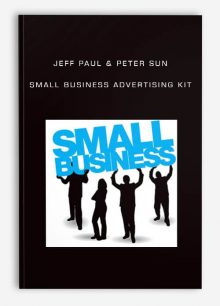Edwin Heave – Modern Financial Systems. Theory and Applications
$15.00
Product Include:
File size:
Edwin Heave – Modern Financial Systems. Theory and Applications
**More information:
Get Edwin Heave – Modern Financial Systems. Theory and Applications at Salaedu.com
Description
A valuable guide to the essential elements of modern financial systems
This book offers you a unified theory of modern financial system activity. In it, author Edwin Neave distills a large body of literature on financial systems, the institutions that comprise the systems, and the economic impacts of the systems’ operation. Through non-technical summaries, Neave provides you with a primer on how financial systems work, as well as how the many parts of any financial system relate to each other. He does so in a straightforward manner, with an emphasis on economic principles and the relationship between various aspects of financial system activity.
- Discusses financial governance and explains how financial markets and institutions complement each other
- Identifies the economic forces at work within financial systems and explores how they determine system organization and change
- Offers a theoretical survey of financial activity and its application to numerous practical situations
- Explains both static financial system organization and the dynamics of financial system evolution
Following a non-technical approach, this book skillfully explores how financial systems work, as well as how the many parts of any financial system relate to each other.
TABLE OF CONTENTS
Preface.
Part One: Theoretical Overview.
Chapter 1. Introduction.
Chapter 2. Financial System Functions.
Chapter 3. Financial System Governance.
Chapter 4. Financial System Organization and Change.
Part Two: Market Versus NonMarket Governance.
Chapter 5. Market Governance.
Chapter 6. Intermediation and Internal Governance.
Chapter 7. Terms Of Deals.
Part Three: Asset Prices And Market Relations.
Chapter 8. Pricing Stocks and Bonds.
Chapter 9. Pricing Derivatives By Arbitrage.
Chapter 10. Markets With Impediments To Arbitrage.
Part Four: Applications: Market Activity.
Chapter 11. Securities, Bond And Mortgage Markets.
Chapter 12. Markets For Trading Risks.
Chapter 13. Exchange Rates and Markets.
Part Five: Applications: Pooled Investments.
Chapter 14. Marketable Securities Portfolios.
Chapter 15. Nonmarketable Securities Portfolios.
Part Six: Applications: Intermediation.
Chapter 16. Principles of Intermediation.
Chapter 17. Management Practice: Domestic Institutions.
Chapter 18. International Banking and Banking Markets.
Part Seven: Industry Organization And Regulation.
Chapter 19. Banking Market Structure: Models and Empirical Research.
Chapter 20. Bank Runs And Systemic Risk.
Chapter 21. Financial Activity And Capital Formation.
Chapter 22. Financial Regulation.
References.
Index.
AUTHOR INFORMATION
Edwin H. Neave, PhD, is a former departmental editor of finance for Management Science. He has written more than fifty articles and fifteen books focusing on asset pricing, derivatives pricing, financial system theory, and financial system practice. Neave is the sole academic who is an Honorary Fellow of the Institute of Canadian Bankers, and his banking education programs are currently used in more than forty countries. Neave has held positions as associate professor, Northwestern University; Bank of Montreal Professor of Business and Finance, School of Business, Queen’s University; as well as director, Queen’s Financial Economics, and professor of economics, both at Queen’s University.
Financial Development Course
Financial development means some improvements in producing information about possible investments and allocating capital, monitoring firms and exerting corporate governance, trading, diversification, and management of risk, mobilization and pooling of savings, easing the exchange of goods and services.
1 review for Edwin Heave – Modern Financial Systems. Theory and Applications
Add a review Cancel reply
Related products
Financial Development Course
Financial Development Course
Financial Development Course
Financial Development Course
Financial Development Course
Financial Development Course
Financial Development Course
Financial Development Course











king –
We encourage you to check Content Proof carefully before paying.“Excepted” these contents: “Online coaching, Software, Facebook group, Skype and Email support from Author.”If you have enough money and feel good. We encourage you to buy this product from the original Author to get full other “Excepted” contents from them.Thank you!